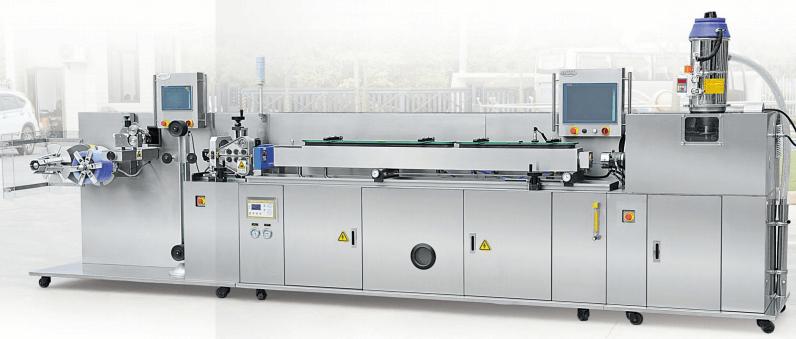
Advantages of Plastic Compounding Extruders
The medical equipment industry plays a critical role in advancing healthcare and improving patient outcomes. In this ever-evolving field, plastic compounding extruders have emerged as a game-changer, offering numerous advantages in the production of medical devices, pharmaceutical packaging, and biocompatible materials. This article explores the transformative benefits of plastic compounding extruders and their impact on the medical equipment industry.
What is Plastic Compounding Extruders?
Plastic compounding extruders are advanced machines that blend and process various polymers, additives, and fillers to create customized materials with enhanced properties. They come in different types, including single-screw extruders, twin-screw extruders, and co-rotating or counter-rotating extruders. The core purpose of plastic compounding extruders is to optimize material characteristics to meet the demanding requirements of medical applications.
What are the Advantages of Plastic Compounding Extruders
Enhanced Material Properties
Plastic compounding extruders enable the development of materials with improved mechanical properties, such as increased strength, durability, and flexibility. These extruders also enhance thermal stability, making the materials suitable for sterilization processes and resistant to extreme temperatures.
Additionally, compounding extruders facilitate the incorporation of additives and fillers, resulting in enhanced chemical resistance and improved biocompatibility.
Additionally, compounding extruders facilitate the incorporation of additives and fillers, resulting in enhanced chemical resistance and improved biocompatibility.
Customization and Versatility
One of the remarkable advantages of plastic compounding extruders is their ability to blend multiple polymers, allowing manufacturers to create materials with unique characteristics tailored to specific medical applications.
By adjusting the formulation and processing parameters, the extruders offer versatility in achieving desired attributes, such as color, transparency, or elasticity. This flexibility enables the production of medical equipment with superior performance and patient comfort.
By adjusting the formulation and processing parameters, the extruders offer versatility in achieving desired attributes, such as color, transparency, or elasticity. This flexibility enables the production of medical equipment with superior performance and patient comfort.
Cost-Effectiveness
Plastic compounding extruders contribute to cost-effectiveness in the medical equipment industry. They enable efficient material utilization by reducing waste and optimizing the blending process. The ability to incorporate recycled materials further enhances cost efficiency while supporting sustainability initiatives.
Moreover, these extruders facilitate economical production processes, enabling manufacturers to meet the increasing demand for high-quality medical equipment at competitive prices.
Moreover, these extruders facilitate economical production processes, enabling manufacturers to meet the increasing demand for high-quality medical equipment at competitive prices.
Applications of Plastic Compounding Extruders
Medical Device Manufacturing
Plastic compounding extruders are extensively used in the production of surgical instruments, implantable devices, and medical tubing. By utilizing these extruders, manufacturers can create materials with specific characteristics, such as antimicrobial properties, biocompatibility, and radiopacity, ensuring optimal performance and patient safety.
Pharmaceutical Packaging
The pharmaceutical industry relies on plastic compounding extruders for the production of drug containers, vials, blister packs, and pharmaceutical films.
These extruders enable the development of materials with excellent barrier properties, ensuring the integrity and stability of pharmaceutical products while protecting them from external factors such as moisture, light, and oxygen.
These extruders enable the development of materials with excellent barrier properties, ensuring the integrity and stability of pharmaceutical products while protecting them from external factors such as moisture, light, and oxygen.
Biocompatible Materials
Plastic compounding extruders play a vital role in producing biocompatible materials for medical implants. By compounding polymers with additives and fillers, extruders enhance the biocompatibility of materials, reducing the risk of adverse reactions in patients.
This advancement opens new possibilities in the field of implantable medical devices, contributing to improved patient outcomes and quality of life.
This advancement opens new possibilities in the field of implantable medical devices, contributing to improved patient outcomes and quality of life.
Conclusion
The applications of plastic compounding extruders in the medical equipment industry are extensive, ranging from surgical instruments and implantable devices to pharmaceutical packaging and biocompatible materials. By leveraging the capabilities of compounding extruders, manufacturers can meet the increasing demand for innovative medical equipment that meets stringent regulatory requirements while delivering improved patient outcomes.
However, challenges related to quality control and regulatory compliance persist, necessitating strict adherence to standards and regulations to ensure the safety and efficacy of medical equipment. The future of plastic compounding extruders lies in advancements in material science, which will drive further innovation in the field. Additionally, the industry's focus on sustainable and bio-based materials presents an exciting avenue for the development of environmentally friendly medical equipment.
However, challenges related to quality control and regulatory compliance persist, necessitating strict adherence to standards and regulations to ensure the safety and efficacy of medical equipment. The future of plastic compounding extruders lies in advancements in material science, which will drive further innovation in the field. Additionally, the industry's focus on sustainable and bio-based materials presents an exciting avenue for the development of environmentally friendly medical equipment.



